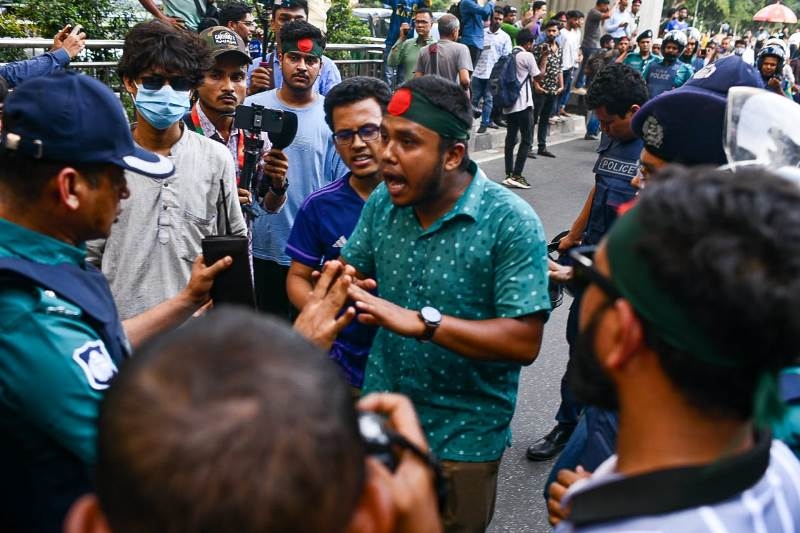- Italian PM Giorgia Meloni to Visit Bangladesh on Aug 30-31 |
- BNP to Get 38.76% Votes, Jamaat 21.45%, NCP 15.84% |
- Bangladesh’s Democratic Promise Hangs in the Balance |
- World War III to start with simultaneous Xi, Putin invasions? |
- Election delay anti-democratic, against July-August spirit |
Reform, Elections, and the Need for Political Maturity

Quota protesters at Shahbagh in July last year. It transformed into anti-discrimination movement and finally one-point movement to remove autocracy.
The political atmosphere in Bangladesh is increasingly clouded by rhetorical crossfire, despite a shared commitment among parties to reform and justice. The irony is stark: while no major political force opposes the need for institutional reform or accountability for the mass killings of June–July 2024, the debate has devolved into a contest of ideological purity and political posturing.
Parties like the National Citizens Party (NCP), Jamaat-e-Islami, and Islami Andolan Bangladesh (IAB) have all voiced support for justice and reform. NCP has consistently called for a new constitution and the prosecution of those responsible for the killings. The BNP, while advocating for elections in February 2026, does not reject the reform agenda. The differences among parties lie in timing, sequencing, and scope—not in principle.
This is where the political class must show maturity. Reforms that enjoy unanimous support—such as judicial independence, neutral administration, and the trial of mass killings—should be enacted immediately through ordinances. The interim government has both the mandate and moral obligation to act decisively. Delaying progress in pursuit of elusive unanimity on more complex matters—like deeper constitutional restructuring—risks paralysing the democratic transition.
Bangladesh now finds itself at a rare democratic inflection point. The ouster of the autocratic Awami League regime in the July–August 2024 mass uprising has created a fragile yet historic opportunity for meaningful change. For the first time since 1991—the only period when political forces united to amend the constitution and restore the parliamentary system—today’s parties have forged a temporary camaraderie through shared sacrifice. That unity must now evolve from opposition to construction, from resistance to reconciliation.
The call to democratise cannot remain suspended simply because parties differ over ideological preferences and political objectives. Where agreement exists, immediate action must follow. Where divergence remains, deliberation should proceed—but without stalling the momentum for renewal. Consensus does not require uniformity; it demands collaboration.
Bangladesh’s journey toward democracy has been scarred by decades of autocracy, military rule, and bitter partisanship. But the present moment offers something different: a chance to rewrite the political legacy, guided by compromise, accountability, and common purpose. Political leaders must rise above recrimination and embrace the difficult art of democratic transition.
The people have waited long enough. Now is the time to move from mud-slinging to nation-building—not someday, but today.

